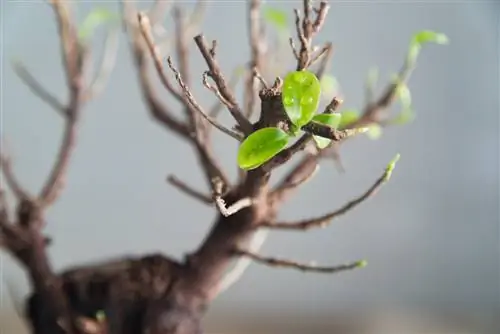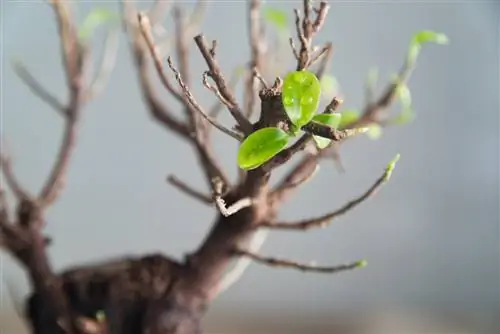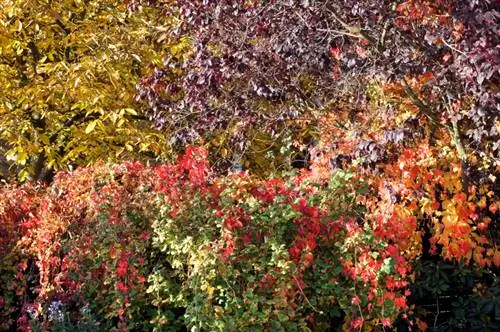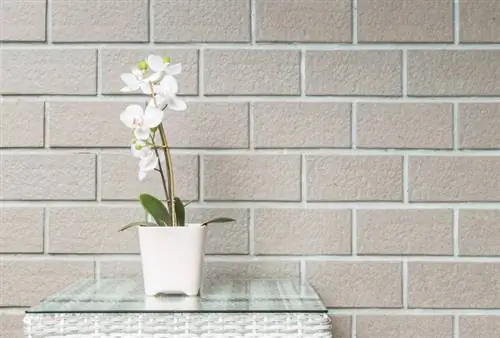- Author admin [email protected].
- Public 2023-12-16 16:46.
- Last modified 2025-01-23 11:22.
The Ficus Ginseng is quite an impressive plant, whether “normally” as a houseplant or as a bonsai. This is not least due to the lush green leaves. It's even worse when they change color or even fall off.

Why does Ficus Ginseng lose its leaves and what can help?
If a Ficus Ginseng loses its leaves, the causes can be a lack of light, drafts, heating air, change of location, sunburn, lack of water or nutrients and waterlogging. This can be remedied by adjusting the watering behavior, changing the location or avoiding temperature fluctuations.
Why is my Ficus Ginseng losing its leaves?
The loss of leaves can have very different reasons, especially when it comes to such sensitive plants as the Ficus Ginseng. Many of them can be found in care, for example when giving fertilizer or watering, others are based on the location.
The Ficus Ginseng reacts quite sensitively to abrupt changes in location or temperature, to a lack of light or drafts. Waterlogging can cause leaves to fall, as can a lack of water. Nevertheless, the ficus is not very difficult to care for. The most important thing is not to subject him to drastic changes and don't water him with water rich in lime, because he doesn't like that at all.
The most important reasons for leaf loss:
- Lack of light, especially in winter
- Draft
- heating air that is too dry or warm
- abrupt change of location or temperature
- Sunburn
- Water or nutrient deficiency
- Waterlogging
What can I do if I lose leaves?
An evergreen plant like Ficus Ginseng also loses a few leaves every now and then, but you should react promptly to excessive leaf loss. First check the soil for dryness or waterlogging. If the ficus is suffering from drought, then water it; if it is too wet, then repotting it into fresh, dry potting soil with only sparing watering will help.
Then also carefully look at the location of your Ficus Ginseng. If it is too warm or too cold, adjust the temperature. If your Ficus Ginseng doesn't get enough light, move it to a brighter place. But avoid too much change, as the laurel fig (that's what the ficus ginseng is also called) does much better if you get used to it slowly.
How can I prevent leaf loss in the future?
In the future, treat your Ficus Ginseng to a bright location without drafts or direct sunlight. Sunburn can also cause leaves to fall off. Summer freshness in the garden or on the balcony strengthens your immune system, and slightly increased humidity also strengthens your ficus. Although the laurel fig can overwinter well at normal room temperature, a slightly cooler winter rest is often good for the plant.
Ideal location conditions for the laurel fig:
- lots of light but no direct sun
- no drafts
- medium to high humidity
- Temperature between 18 °C and 22 °C, in winter also between 12 °C and 16 °C, never below 10 °C
Tip
Even an evergreen plant like the Ficus Ginseng needs to renew its foliage every now and then, so a certain amount of leaf loss is no reason to worry.






